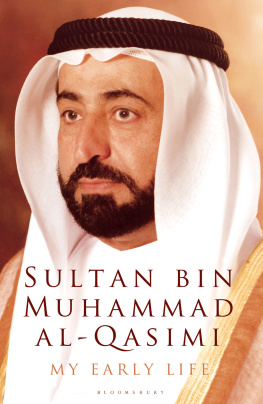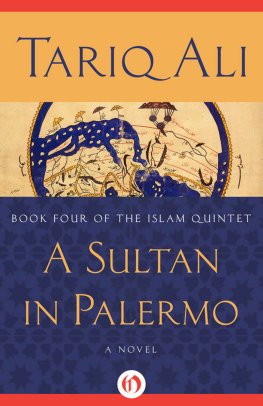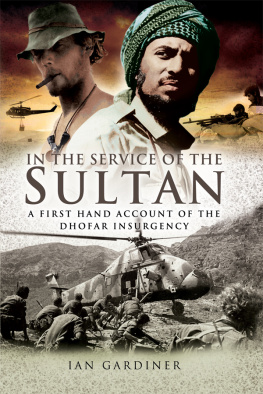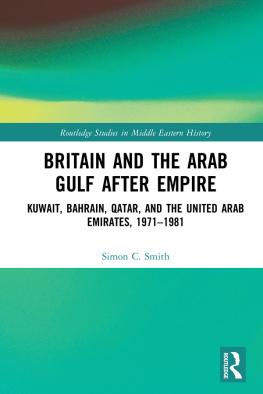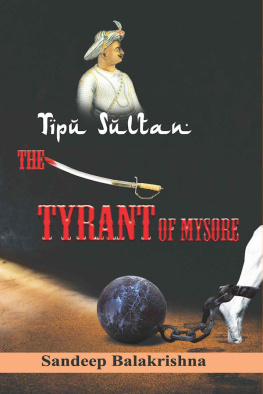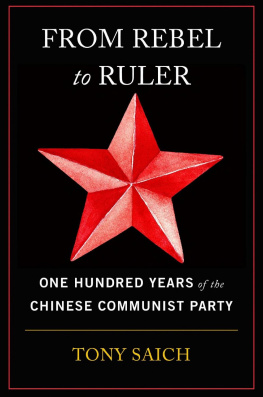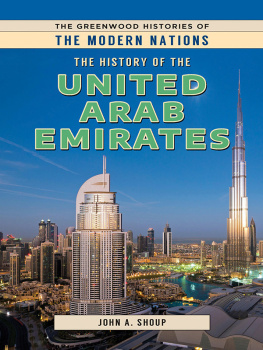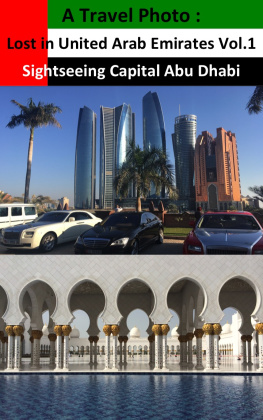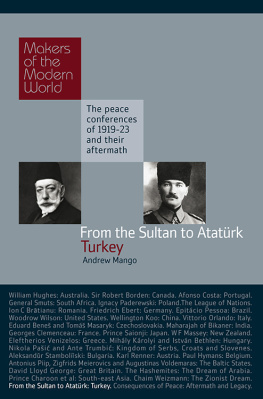MY EARLY LIFE
Sultan bin Muhammad al-Qasimi
Translated from the Arabic by Dr Domenyk Eades
Edited by Dr Ahmed Ali, Brian Pridham and Dr Khaled Hroub

Contents

This book is a document of the history of my family and my country over a period of twenty-nine years. While I have omitted much that was irrelevant, I have also chosen not to include many events that involved people who have passed away and whose stories might upset memories that are better kept within the folds of forgetfulness.
Many individuals supported me while I was writing this book. My wife and children listened to my recollection of the events that I had witnessed throughout my early life and persistently encouraged me to write the book as a permanent record for others to read, now and in the future. Several of my close associates assisted me in collecting, from different sources, copies of some of the supporting archival documents relevant to the events mentioned in the book. Finally, the translators, editors and many others in the publishing industry have worked very hard to produce this excellent English edition of the book. The perseverance and dedication of all involved are greatly appreciated.
May Allah forgive us all.
Sultan bin Muhammad al-Qasimi,
September 2010
I was born on Sunday, 14 Jumada al-Ula 1358, corresponding to 2 July 1939, and became aware of what was happening in the world around me even before my fifth birthday. In the spring of 1944 the Second World War was still raging; British troops and warplanes were already in the British base attached to the airfield in Sharjah and the United States had decided to send its forces to Lydda in Palestine, Habbaniya in Iraq, Bahrain and Sharjah for training, before later deploying them to North Africa.
A team of American military engineers arrived in Sharjah at the beginning of 1944 and built a training camp for the American army to the east of the British base there; the American troops themselves arrived in early May. My father, in his capacity as Deputy to his brother, the Ruler of Sharjah, then in India, paid a courtesy visit to General Lucius Clay, Commanding Officer of the troops (I met him in New York in 1974, when he was Chief Executive of Lehman Brothers), who invited us aboard an amphibious open-top vehicle known as the DUKW, or, more familiarly, as Duck. I sat between the Commanding Officer and my father, while my older brother Khalid, his friend Umran bin Taryam and an American soldier sat in the back. The vehicle drove through the town of Sharjah and then took to the Creek, becoming a boat; it then left the Creek and crossed the dry land of Al-Shush (a sandy spit dividing the Creek from the open sea), the boat becoming a vehicle again, before entering the rough sea. Now it was once more a boat, rising and falling as it struggled against the waves, and we were in the open sea; I became seasick and vomited over the Commanding Officers uniform. In annoyance, the officer turned the wheel towards Sharjah, bringing our boat trip to an end.
On 8 September 1944, a military plane ditched in the sea just off the village of Layyah in Sharjah. This aircraft, a Consolidated Liberator II bomber, number AL 550, belonged to the British Royal Air Force and was trying unsuccessfully to gain height after taking off from Sharjah airport. All the crew members, who were the only people aboard, were rescued. I went to the shore with my brother Khalid and found some coloured pens thrown up on the shore by the waves near the spot where the aircraft had come down. My brother set about collecting the pens and giving them to me.
Our house
We lived in a house adjoining the house of my uncle, Shaikh Sultan bin Saqr al-Qasimi; it belonged to his wife, Latifa bint Said. Between the two houses there was a fence of date-palm leaves and a gate shared by both houses. I cannot remember my uncle and his family being in that house, nor do I remember the death of his two daughters, Azza and Aliya, there. But I do remember the opening that I and my uncles two sons, Abdullah, who was older than me, and Suud, who was younger, made in the palm-leaf fence when we wanted to pass from one house to the other. I used to watch the opening with a touch of fear and personal foreboding; I fancied I could see the legs of a jinni , like mihmas handles (a mihmas is a shallow pan with a long handle, used by the Bedouin to roast coffee beans), as he ran from the toilet at the corner of the house to the room of my uncles daughters in the other corner, in order to kill them. Because of bad memories associated with the death of his daughters my uncle abandoned that house and had a new palm-leaf house built with great haste.
The palm-leaf fence used to divide the deserted house of my uncle from my fathers house which was always full of people. My father had a large entourage of family, neighbours, slaves and servants: guests would attend one of my fathers majlises (a public reception area outside the house) the large majlis for the public and the small one for leading personalities. Not a day passed without a feast in our house: plates piled with food were passed out of the three doors of the house, and others were passed to the outside benches of the general majlis where hungry people would flock, this being a period of famine brought on by the Second World War.
The western gate of our house opened onto a courtyard with the houses of my uncles around it, and also Bin Rakkadhs house whose sons, Ibrahim and Ali (who were both working on the British base), used to bring me English magazines which I was too young to read but I enjoyed the pictures. Close by the courtyard was a house whose wall was crumbling; a large storeroom protruded from it and its door was always open to the courtyard. This was called Al-Duwaishs house. My uncle Majid kept a madman in there, secured with an iron chain fixed to a rock. Whenever the madman sensed that someone was passing near the storeroom he would rush towards the door, shrieking. Passers-by imagined that he was free, until the chain stopped him from going beyond the storeroom door. The way through the courtyard, passing by the madmans door, led to the mosque or the market, or to the house of the Mutawwa, or teacher, Faris bin Abd al-Rahman, a Najdi from Saudi Arabia who was Imam of the mosque and taught the children at his house. (In some countries the Mutawwa is an enforcer of Islamic proprieties but here the word denotes a preacher and teacher.) The house of the Mutawwa Faris was close to our family houses, but fear that the madman might escape stopped me from going there to school. Then the madman suddenly disappeared, the wall around Al-Duwaishs house was repaired and it was incorporated into my uncle Majids house. With my mind at rest I was able to go regularly to the Mutawwas house. I was still young, learning the juz amma the final one-thirtieth of the Quran and traditionally the first step in memorising it but the older boys and girls were completing the Quran, one after the other. Completing the Quran did not mean memorising it: it meant being able to read all of it very well and memorising the juz amma .
Those who completed the Quran graduated from the school after the Mutawwa or the female Mutawwa had carried out the laudation of God. A boy would be dressed in clean clothes or, sometimes, new clothes, while the sons of the Shaikhs or the rich would put on a gold khanjar , or dagger, with headcloth and headband. The boy would graduate together with his contemporaries, led by the Mutawwa or someone deputising for him, repeating the invocation of God with the boys behind him saying Amen, as one, in a loud voice like a bellow: AMEN. The Mutawwa or his deputy then went from door to door collecting donations.
Next page
